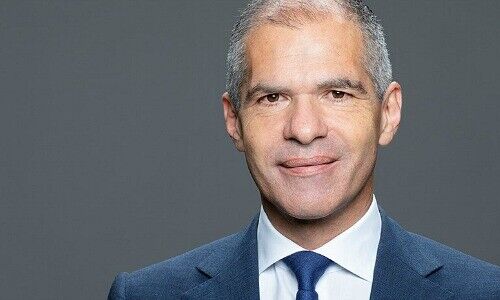An essay on the boards role in the transformation process
How are company boards coping as the drivers of transformation – digitization, ESG, and changing client needs – force major adjustments? The pandemic is upping the pressure on these bodies, Reto Jauch writes in an essay for finews.first.
This article is published on finews.first, a forum for authors specialized in economic and financial topics.
Despite being a persistent buzzword, transformation remains a half-hearted affair at many companies. 
The reluctance stems from a lack of recognition that transformation requires a change in operational logic. The role of company boards is central: to provide impetus, especially towards prompting a change in thinking with leadership as well as rank and file, and to counter resistance to the transformation. This can only work when directors themselves have a keen understanding of transformational change and can act as a template within an organization. Corporate culture and structure as well as the strategy must be aligned with long- term goals, and employees empowered accordingly as well as measured on their performance against this.
«If the answer is anything but yes, the director should be replaced with someone more qualified»
There are various ways to do this: softening hidebound hierarchies and «silo»- based thinking, allowing an open culture that fosters forgiveness and new ideas as well as promoting innovative projects and interdisciplinary teams. Long-term success is only possible if boards work in lockstep with management and not only allow change to happen but actively demand and promote it. A healthy oversight board develops over a period of long-term stability, with members in place from eight to nine years. At the same time, boards need to ask themselves whether they can adequately meet the new skillset – digitization, technology, data, understanding changing client needs – or whether they need reinforcement from outside. Each member, as well as the body as a whole, needs to weigh the speed of change versus stability continually: would a particular person be nominated again in a competitive selection process based on their business expertise, interpersonal skills, and general suitability? If the answer is anything but yes, the director should step down and be replaced with someone more qualified.
«The group's dynamic should wrap these elements and empower the board to work as a team»
The continual succession pipeline in boards needs to focus more strongly on whether skills, experience and personality are the best fit for the challenges which lay in wait. Instead, these job descriptions often reference the previous job-holder, which simply preserves the status quo. The benchmark for companies is to keep looking forward. The board also needs to regularly review its composition, strategically. The best starting point to master transformation is embedded in an integrated framework of suitability, behavior, and compliance rooted in capabilities, personality, and legal requirements. The group's dynamic should wrap these elements and empower the board to work as a team.
«These gaps pave the way to a job description for incoming directors»
From a suitability point of view, is a board member individually and collectively equipped to face the strategic challenges of transformation? A SWOT analysis spots the internal and external risks and opportunities. The board can extract the skills from the challenges that the SWOT defines. It's not about giving marks to individual members, but to identify skill gaps in the collective. These gaps pave the way to a job description for incoming directors. In terms of behavior, does a company need a «doer» to initiate and foster a restructuring project, or do they urgently need a team player to counter a board's centrifugal forces? Perhaps it is missing an analytical perspective, a good listener who poses few, though searing, questions. We know that a good group dynamic is favorable for company performance. «Healthy» boards don't hew to group-think, but instead, draw in each team member and allow room for content-based conflict and fruitful debate.
« The value of diversity can't be overstated»
Regulatory chops are compulsory to round out suitability and behavior: they push seamless compliance with legal and supervisory requirements to the forefront. Transparency and honestly with independence (institutionally, financially, and personally), availability (number of mandates and appointments), conflicts of interest (business dealings, mandates), diversity (including gender representation), and statutory age limits (70 years) are equally important. The value of diversity can't be overstated when it comes to the challenges of transformation: the empirically-proven fact that diverse groups make better decisions and thus companies sustainably more successful is now widely recognized.
«This is decisive for sustainable success»
The topic of gender diversity – neither to be second-guessed nor have developments in this area advanced satisfactorily – commands special focus. It would however be unfavorable if companies stopped at the point of acknowledging the positive correlation between more women in leadership positions with lasting success. Boards and top executives need to strive to include more aspects of diversity in the development of and recruitment of key people in order to fully exploit the potential. In conclusion, the demands on boards in view of transformation are neither a fad nor a mood – they represent reality, and requirements for directors to face the drivers of transformation. This is decisive for sustainable success.
Reto Jauch runs the board & CEO practice at Schulthess Zimmermann & Jauch. He regularly hosts and moderates roundtables for board directors and decisionmakers from politics and academia on governance and leadership topics. He is a managing partner of Schulthess Zimmermann & Jauch, a board advisory and executive search firm with offices in London, New York, and Munich. Jauch was previously head of Europe for board advisory and search practice at A.T Kearney, where he was a partner from 1995 until 2002.
